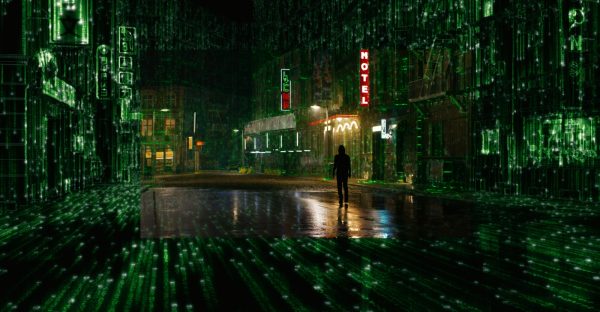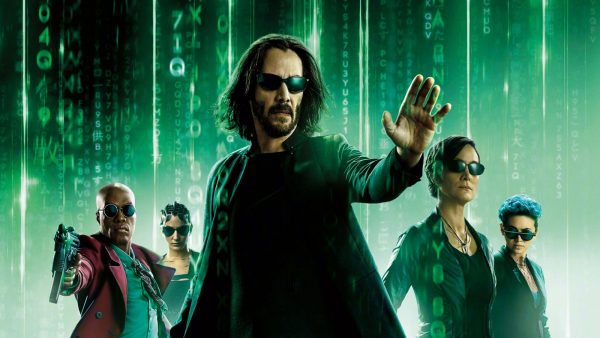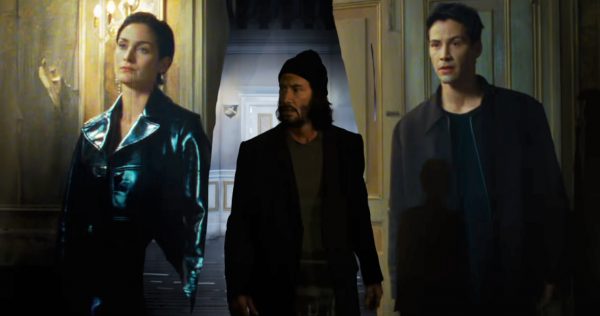Tom Jolliffe looks at metacinema, and whether the well of engaging meta movie ideas has dried up…

Metacinema. In more recent times more popularly referred to as meta, it’s a mode of filmmaking in which the audience is made aware they’re watching a piece of fiction. It goes a little deeper of course, as whilst conventional superhero movie might play out as if it’s ‘real’ we still going in with a particular awareness that men can’t fly or turn the Earth back on its axis, but those films aren’t addressing us to the fact it’s fiction. Films about film are popular within metacinema, and there’s been an increasing trend in cinema from the last 30 years to have films reference themselves. You might see fourth walls being broken, characters addressing the audience directly (Ferris Bueller…Bueller…Bueller), or in the case of a film like Last Action Hero, Arnold Schwarzenegger plays both himself, and a character from an Ahnuld picture.

If one were to point to a particular type of film that can be thoroughly pleased with itself, big headed from the wry wit in which it was made, it’s probably a meta movie. On occasions the meta movie has been brilliantly delivered. One of the best exponents of the meta picture was Wes Craven. He wasn’t the first meta horror filmmaker by any means, but he upped the ante. He aimed the self reference to not only the genre itself, but also his most staple character Freddy Krueger. Witty, funny, subversive, whilst still adhering vehemently to required thrills and scares expected of a horror film. Wes Craven’s New Nightmare took a technique that had been out of fashioned, tied with a franchise character who had also seemingly run his course, and reinvigorated both. Metacinema at its finest.

A couple of years later he repeated the trick with an even more iconic film in Scream. So iconic in fact that we’re seeing a fourth sequel (reboot/whatever) in the franchise right now. The original film played on every trope in slasher cinema. It made light of all the logic drops and faux pas committed by writers, and thus in turn characters on screen. Running upstairs instead of out the door for example (the gag being that after our protagonist belittles horror characters for doing so, she does the same whilst hunted by Ghostface). Jamie Kennedy’s nerdy character does everything but directly break that fourth wall (although he’s as close as one could be without doing it) as he runs his listening audience within (and outside of) the movie over the rules of surviving a horror film. Again, metacinema effectively done, without an overriding smarm. A little later, The Cabin in the Woods effectively riffed on a wide range of horror cinema tropes, even if it did border on revelling in the smell of its own farts.

The turning of 2021 to 2022 has seen a couple of very high profile meta-movies. The aforementioned new Scream comes out now, to impressive reviews thanks to an ability to bring out the best of a long running franchise known for self reverence, movies within movies and more. To still manage to do something engaging and witty (after a couple of sequels tried too hard to do so) is impressive. On the flipside of the coin though is The Matrix Resurrections. Greeted with middling reviews, boosted by a select and loyal few who maintain it’s a work of genius, it has found the audience reaction to be decidedly mediocre. The supporters of the film have even backed it with the caveat that it’s awkward, has poor action, ropey effects and the finale fails. However, many of these points are defended as being intentional. One of many gags. The poorly shot and constructed fight sequences which bely the artful grace of the original and look more like the production line mentality of modern blockbusters, is in fact a comment on modern action blockbusters. It may well be the case (and I wouldn’t doubt Lana Wachowski would double down on a gag like that). However, does it achieve much? Is there really a point? A bad fight scene, whether intentional or not, doesn’t work, which ultimately hurts a film spawned from a franchise synonymous with impressive fight scenes. This isn’t Bowfinger, this is a Matrix movie.

The extent of how meta this film was surprised many, and that of course will have ultimately contributed to the predominant revolt in the IP fans who expected something more in-line tonally to the originals. Of course the history of this instalment coming to life is well known, even to casual fans. Wachowski didn’t want to do the film, but it was going to be made one way or another. Backed into a corner, she was even more against the idea of some gun for hire taking the work the Wachowskis had created and modernising it with all the frustrating tropes and issues that do tend to plague the production line corporate blockbuster. The fact is, a film like the original Matrix wouldn’t have been greenlit in these past 5-10 years, nor would a studio have indulged a pair rising directors (with one little gem behind them) with quite the creative freedom they had (which extended to bringing over Yuen Woo Ping and training the cast in on screen M.A fighting for half a year).
So Resurrections is made and front loaded with dissecting attacks on the studio, the modern film industry, the modern blockbuster, modern society. Okay, some of these aspects do land, but it’s debatable how much is a defensive volley back at WB/modern movies/moviegoers, and how much is laced with some self satisfaction at how ‘clever’ this all is. You’d look at aspects of the previous sequels for example, far too top heavy on the philosophical references and ‘intellectual dialogue’ that were mere undercurrents in the first. The architect’s infamously migraine inducing scene in The Matrix Reloaded was excessive and irksome. Wachowski certainly has previous at being a little too pleased with her work’s intellectual level.
The trouble is, whilst the latest Scream will do nothing to revolutionise meta cinema, other than deliver an effective example of it, The Matrix Resurrections might actively torpedo metacinema. Maybe that’s intentional, who knows. Hell, if you tank a film you’ve made your bank on, and don’t want another instalment to ever be made, it’s a hell of a way to ensure it doesn’t. Again, I feel like that’s feasible (and I kind of admire it). Furthermore, the general standard of meta movies has dropped a lot in the last couple of decades. Gone are the days of great works like Adaptation or Being John Malkovich which found imaginative ways to make the Meta aspects work. It might just be a symptom of a wider dearth in creative storytelling of course, and meta, like much of the other storytelling in modern mainstream cinema just lacks freshness. Meta comedies certainly aren’t as invigoratingly entertaining now as Spaceballs, The Princess Bride or The Naked Gun for example, although Deadpool did nail most of its landings (prior to a somewhat tiresome sequel).
Ultimately, more often than not, meta movies are just a little bit annoying (and often self congratulatory, nay, wanky). The whole, this is a movie gag or breaking of the fourth wall is rarely done in a way that doesn’t feel tiresome. It may well be, that at least for now, the trend fades again, waiting for a film that might reinvent the wheel with the same verve in which Wes Craven did between 1994-1996. Right now however, though the new Scream might satisfy by ticking some trusty meta boxes, Metacinema in general is truly played out…
Tom Jolliffe is an award winning screenwriter and passionate cinephile. He has a number of films out on DVD/VOD around the world and several releases due out in 2021/2022, including, Renegades (Lee Majors, Danny Trejo, Michael Pare, Tiny Lister, Nick Moran, Patsy Kensit, Ian Ogilvy and Billy Murray), Crackdown, When Darkness Falls and War of The Worlds: The Attack (Vincent Regan). Find more info at the best personal site you’ll ever see here.













